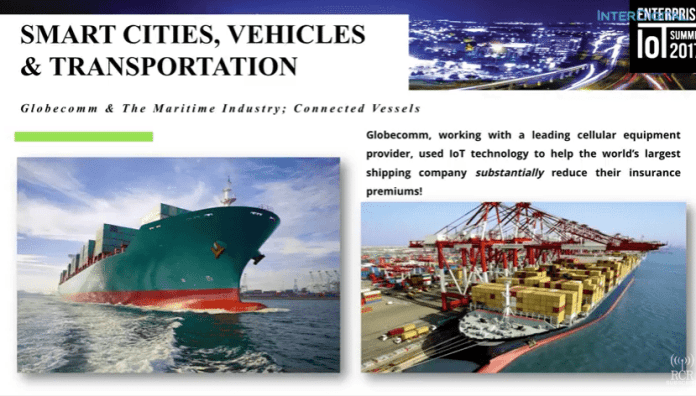Globecomm & The Maritime Industry; Connected Vessels
Paul Scardino, SVP, Globecomm
The Internet of Things may be newer-used terminology but it is truly an evolution of a term that was coined in the 1970s, SCADA (Supervisory control and data acquisition) systems. These are systems that provide for the gathering of data in real time from remote locations in order to control equipment and conditions.
Globecomm has been connecting companies via satellite for more than 20 years ultimately providing these type of SCADA systems. As our corporate customers have become more sophisticated and global in tracking and monitoring assets, they have asked Globecomm to propose innovative and reliable solutions.
More recently, technology advances that link the Internet of Things to industry has created an avalanche of applications that need connectivity. In a landmark project, Globecomm worked with a major wireless technology company to place sensors that continuously measure the condition of valuable cargo throughout the fleet of one of the world’s biggest shipping lines.
The shipping company wanted to monitor the status of the valuable cargoes inside refrigerated shipping containers. These units maintain a constant temperature to protect perishable goods – as long as they are supplied with power from a truck, ship or from a diesel generator. There is high value in being able to ensure a shipper that the temperature inside the container remained within the right limits, and IoT technology is the only way to do it.
The solution included a global maritime communications platform to provide uninterrupted service reaching >95% of the world’s shipping lanes and the design and implementation of a global machine-to-machine system for container monitoring. It allowed the company to capture and manage data and perform analytics to identify opportunities for greater efficiency, security, safety, cost savings and improved performance. This presentation offers a case study in effective information logistics from Globecomm.

